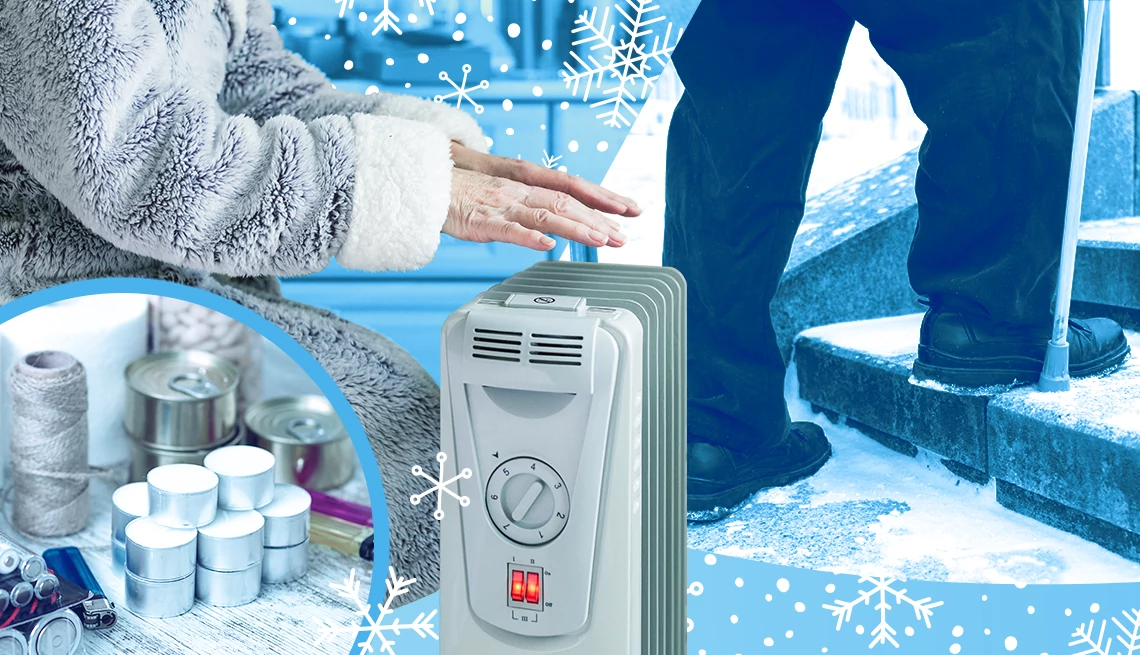
How caregivers can keep loved ones safe in winter
- Select a language for the TTS:
- UK English Female
- UK English Male
- US English Female
- US English Male
- Australian Female
- Australian Male
- Language selected: (auto detect) - EN
Play all audios:

When a record 10 inches of snow blankets New Orleans and temperatures are colder in Atlanta than in Anchorage, Alaska, as was the case on Jan. 22, it’s a reminder that everyone should be
prepared for the extremes of winter. This is especially true for older adults, who are at risk of a range of cold-related health hazards. However, care recipients who rely on support from
family members or friends might not be capable of taking the necessary precautions on their own. That’s why it is important if you’re helping care for aging loved ones to be aware of the
risks posed by winter weather and to take steps to keep them safe. ASSEMBLE AN EMERGENCY KIT. Make sure your aging loved ones have essentials and supplies on hand in case they can’t get out
or you or their other caregivers can’t get to them. Melissa Batchelor, a professor at George Washington University School of Nursing and director of GW’s Center for Aging, Health and
Humanities, recommends having enough non-perishable food and bottled water (one gallon per person per day) to last a week. She also suggests having a flashlight and batteries, an emergency
whistle, personal hygiene items, a can opener, plastic plates, cups and utensils, and a cell phone with a power bank to charge it if there isn’t electricity. Seniors also should have enough
medications and medical supplies for several days. You might need to help them sign up for prescription delivery to ensure they don’t have trouble getting their medications in the winter.
CREATE AN EMERGENCY PLAN. Older adults should know whom to call, what to do and where to go if there is a problem. Make a list of emergency contacts and hang it up in your loved ones’ home.
“Most importantly, it’s reminding them, ‘You’re not inconveniencing anyone if you have to call. It’s always important to call,’” says Kunu Kaushal, founder and CEO of Senior Solutions, an
independent home-care agency based in Brentwood, Tennessee. Also, make sure they have a personal emergency response system, or medical alert device, to call for help with the push of a
button. Kaushal recommends identifying a location your loved ones can get to if they are without power, such as a neighbor with a generator. If your loved ones have health issues and can’t
leave their home, ask the fire department in their town if they can be placed on a priority list for well checks to ensure emergency personnel check in on them during weather emergencies, he
says. Or, make sure a neighbor has a key to your loved ones’ home and can check on them if you can’t. If older adults have a medical device that requires power, find out how long they can
be without the device. Kaushal cautions that some devices, such as oxygen concentrators, often don’t have a backup battery. If so, your loved ones will need an alternate power source, such
as a generator. JOIN OUR FIGHT FOR CAREGIVERS Sign up to become part of AARP's online advocacy network and help family caregivers get the support they need. MAKE SURE THERE’S A SAFE
SOURCE OF HEAT. Ensure that the heating system in your aging loved ones’ home is in good working condition, that filters have been replaced and that there aren’t drafts around windows and
doors. Set the thermostat to at least 68 degrees in the winter because lower temperatures can lead to hypothermia for older adults, according to the National Institute on Aging. Installing a
smart thermostat can allow you to keep tabs on the temperature in your loved ones’ home without being invasive, Kaushal says.
